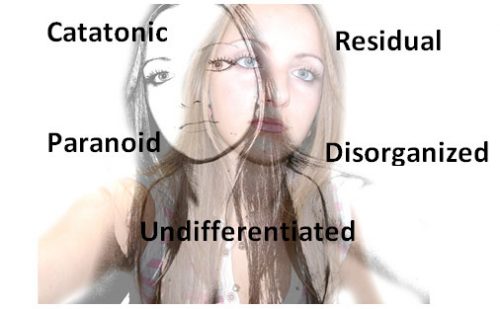When Eugene Bleuler introduced the term schizophrenia, it created confusion in the mainstream academic community if the “split mind” concept would also mean “split personalities.” Schizophrenia does not intend to mean splitting of personalities like in the Dissociative Identity Disorder. Split mind explains the distortion of cognitive processes due to an imbalance of neurotransmitters in the brain.

Scientists believed that the disruption of brain chemicals, whether too active or not, can result in the symptoms of schizophrenia. These include auditory hallucinations (voices in the head), illusions (seeing things that are not there or misinterpretation of objects), delusions (false beliefs), distinct problems in conveying and understanding messages and difficulties in physical movement. Up until now, research is still in the pursuit of identifying the leading cause of schizophrenia. However, just like any mental illness, schizophrenia is a multi-causation disease wherein several factors are attributed to the development of the disorder. As heredity, substance abuse, malnutrition, exposure to potent viral infection during childhood years that can result in brain anomalies and impairment, lack of adaptive coping mechanisms and problem-solving skills,
Schizophrenia’s Classic Symptoms
Before the release of the new DSM-5 (Diagnostic and Statistical Manual of Mental Disorders fifth edition), subtypes were used to differentiate the forms of schizophrenia. In 2013, DSM-5 no longer considered this categorization and went to describe schizophrenia solely. The subtypes became part of the ongoing manifestations that will help in the diagnosis of the mental illness.
Paranoid delusions. The manifestations are more grounded on paranoia, a false belief that someone or something will compromise one’s safety. The person truly believed that others are out to injure or kill him. With this thought, he is more watchful and fearful of his surroundings, to include his meals poisoned, and would put malicious meanings on other activities.

Catatonia. The symptom would take less or excessive and peculiar movement characterizes it. Some would present waxy flexibility where the person can sustain to maintain one position for more extended periods.
Disorganized. Persons with schizophrenia often present with chaotic patterns of thoughts and actions that can result in communication problems and self-care difficulties.
Management
Caring for a person with schizophrenia can be challenging. The family is instructed on specific actions and caring behaviors to provide to the person.
- Acknowledge the feelings of delusion. Do not confront or correct the thought during the height of delusions. When someone shows acceptance, their anxiety will lessen.
- Explain the procedures to prevent doubtfulness and the belief that he is tricked.
- Prepare foods in front of the person or offer canned foods and open it in front of him. This will correct his views that he is being poisoned.
- Prevent or avoid talking in low tones when in the vicinity.
- Encourage to engage in healthy regimens such as taking medications on time without fail, exercising, good sleeping habits, and decreasing alcohol and drug intake.
- During the acute phase, ensure the person’s safety and that of others.
- Maintain consultation with mental health professionals and going to therapy sessions.
- Hospital admission is necessary of the person shows common and dangerous symptoms.